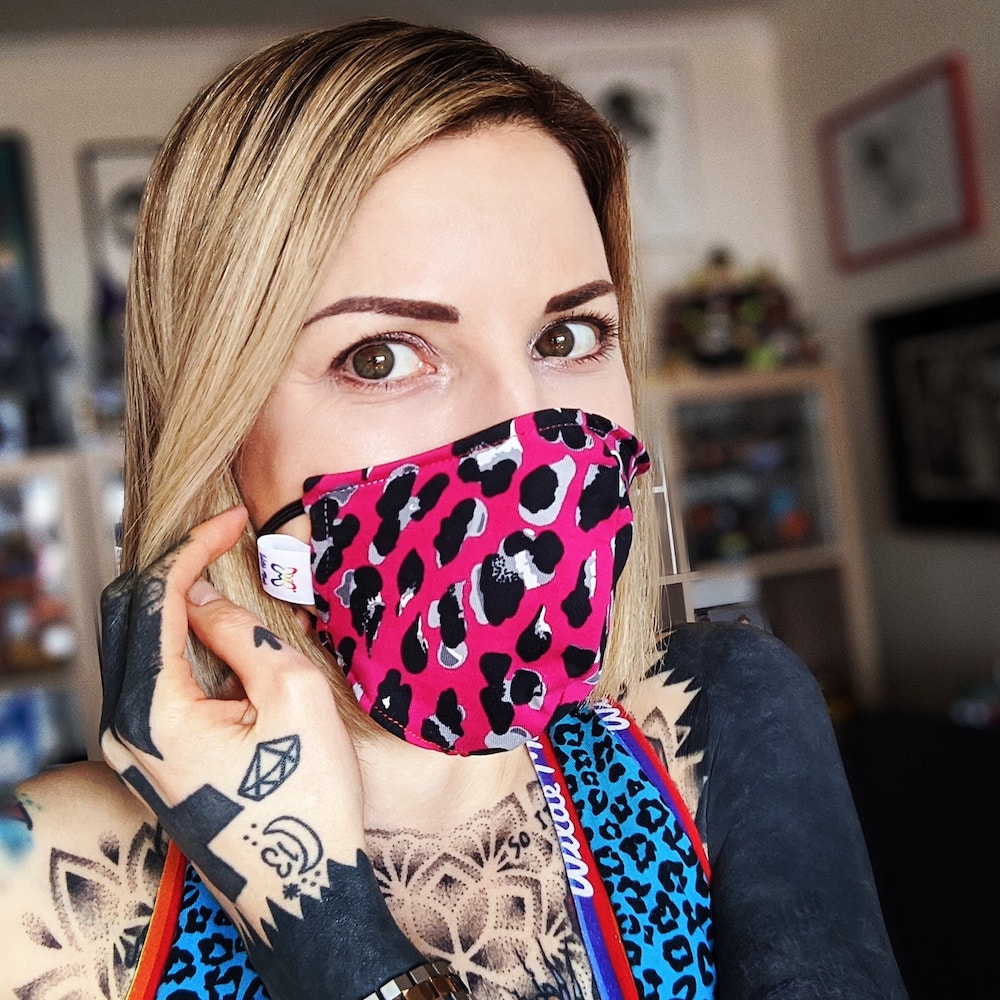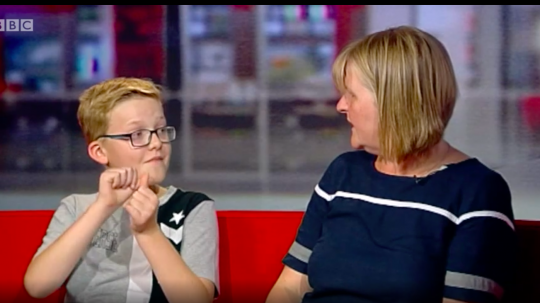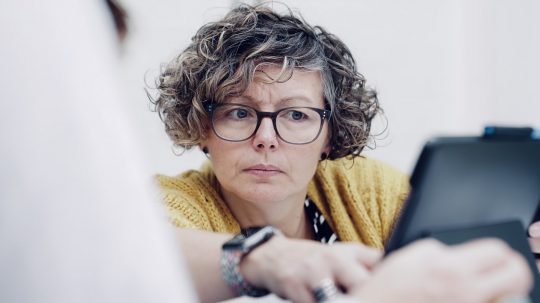“I want everyone to stay safe but I feel very isolated,” said Emma Mendes da Costa, who has severe hearing loss and relies on lip reading to communicate. As face coverings become compulsory in shops, the 36 year old is urging the government to ensure that public-facing workers have access to clear face masks so that deaf people aren’t left behind.
Emma, who wears two hearing aids, explained to EachOther how opaque face masks are having a “huge” detrimental effect on her day-to-day life. This is because it makes it difficult for her to communicate with shop staff and transport workers as she cannot rely on lip-reading or facial expressions.
“I get very anxious and emotional worrying about the potential misunderstandings and conflicts that could arise during previously simple situations like travelling and shopping,” she explained.
Her comments come after the government announced on Tuesday that the public must wear face coverings while inside shops in England from 24 July, having already made this a requirement on public transport and at NHS facilities last month.
Under the government’s new rules, children under the age of 11 and those with certain disabilities will be exempt from wearing face masks.
But for Emma, who works in communications at Brighton General Hospital, face masks have “impacted negatively” on her mental health and “reduced [her] independence.”
“I can’t understand people like bus drivers and shop assistants,” she added.
“I worry so much that people will get angry at me for not understanding them. I want everyone to stay safe, but I feel very isolated.”
The government’s latest measure brings it in line with that of other countries, including Scotland, Spain, Italy and Germany.
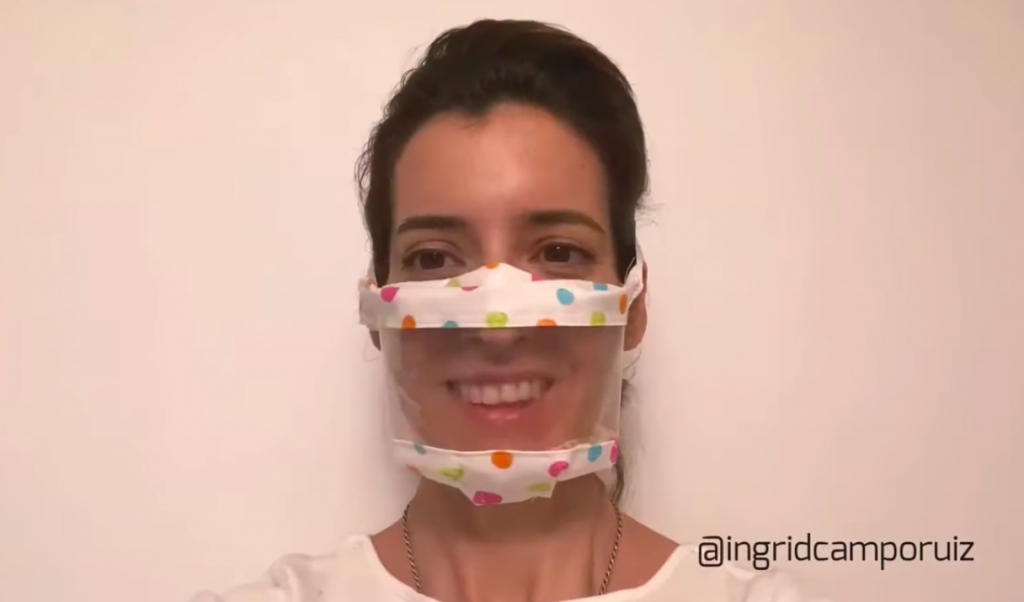
National Deaf Children’s Society has listed videos on DIY clear face masks, including this one by Why Waste Less. Credit: Why Waste Less/YouTube.
Multiple studies have suggested that the widespread use of face masks could significantly reduce the transmission of Covid-19, including those by Cambridge University, the Royal Society’s Data Evaluation and Learning for Viral Epidemics (DELVE), and the Lancet.
However, a growing number of organisations supporting people with hearing loss are calling on the government to clarify its guidance for deaf people. They want the government to make clear face masks more widely available, as this would enable people with hearing loss to lip-read and communicate more easily.
It remains to be seen as to whether the government is legally obliged to provide transparent face masks in certain situations under equality and human rights laws.
Under Article 2 of the European Convention on Human Rights (ECHR), the UK government and other public authorities have a legal obligation to take positive steps to protect people whose lives are at risk, including from Covid-19. To this end, the compulsory use of face masks in shops has been justified on public health grounds. This is not an “absolute” obligation, which means the state may not always be able to fulfil it due to limited resources.
However, Article 14 of the ECHR protects people from being disproportionately discriminated against in their enjoyment of human rights – such as the right to free expression – on grounds of disability, among other characteristics.
Meanwhile, under the Equality Act 2010, people with disabilities, which includes some people with hearing loss, are protected from discrimination by businesses and any other organisations which provide goods and services.
Emma believes “people should definitely be wearing masks, but that there should be guidance in place for all public-facing workers – and ideally clear masks or face shields for them too – so that they can communicate effectively with everyone.”
In the UK, there are 12 million people with hearing loss, equating to around one in six people, according to the charity Action on Hearing Loss.
Of these, it is estimated that 900,000 people have severe or profound hearing loss.
Last month, the health secretary Matt Hancock acknowledged in parliament that face coverings have “an impact on people who are lip reading”.
Hancock said he had been talking to audiologists in the NHS “about what we can do to try to make sure that we have the least negative impact as possible”, adding: “Anything that we can do to mitigate that, I am up for doing.”
EachOther understands that the Department of Health and Social Care (DHSC) is working to source clear face masks that conform with its current safety regulations. It is expected to make an announcement on the availability of clear face masks in health and care settings in due course.
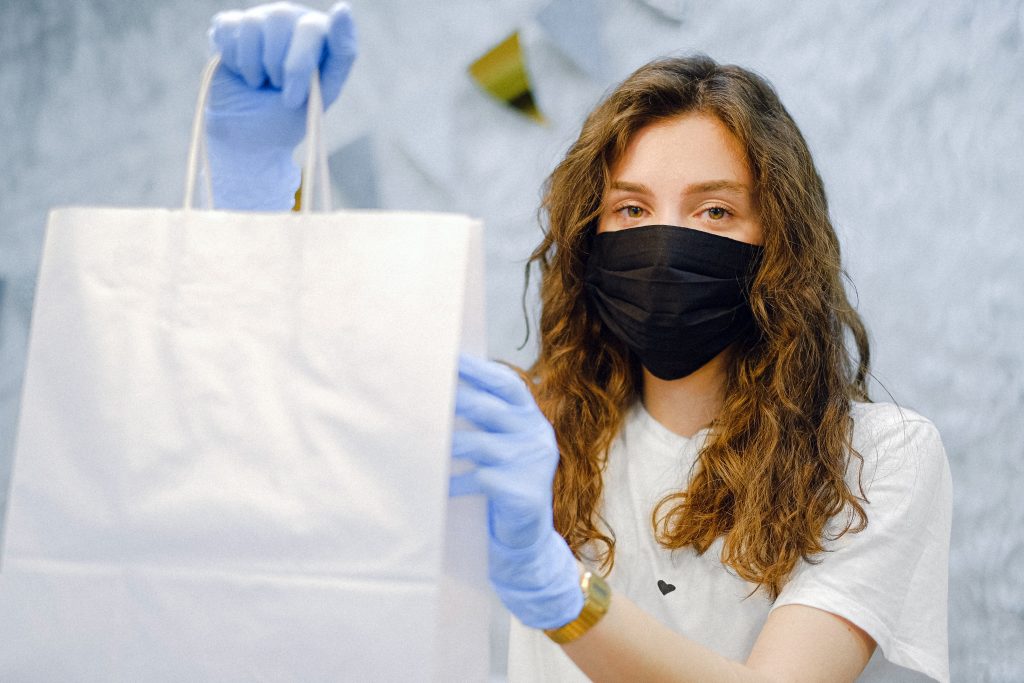
Credit: Anna Shvets from Pexels
‘Isolation and loneliness’
The National Deaf Children’s Society is one of the charities calling for the government to increase the availability of clear face masks. The charity has also put together an article with tips on how to make your own face mask with a clear panel.
Ian Noon, head of policy at the National Deaf Children’s Society, said: “As face masks and coverings become widespread, it will make life harder for deaf people.
“Whether they’re at medical appointments, in the street or socialising with friends, taking shopping trips or using public transport, conversations are going to be much more difficult when they can’t see someone’s face.”
Noon is urging the government to make “clear face masks widely available as soon as possible, because they would make a big difference”.
He said that the current situation due to Covid-19 means that “deaf people will face an even higher risk of isolation and loneliness than they already do”.
He added that some deaf people had told the charity that they are “reluctant to leave the house and are avoiding public transport, even though they rely on it to get to work”.
What we need to see now is a government-led plan to introduce clear face masks across the country, because 12 million deaf people are relying on it.
Ian Noon, head of policy at the National Deaf Children’s Society
Noon explained how parents have reported that their deaf children “don’t want to go to social events and are more withdrawn” because they can’t understand what people wearing face masks are saying. It’s estimated that there are 50,000 children with hearing loss in the UK.
Noon added: “What we need to see now is a government-led plan to introduce clear face masks across the country, because 12 million deaf people are relying on it.”
How safe are clear masks?
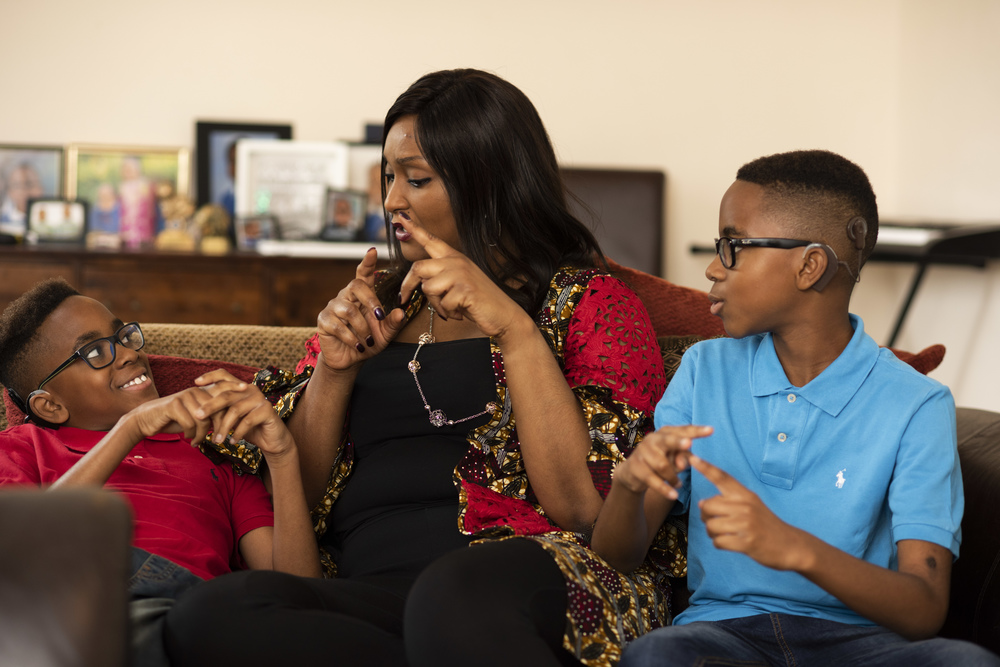
Credit: Courtesy of The National Deaf Children’s Society
At Action on Hearing Loss, the charity is asking the government for clarity on the safety of clear face masks, so that members of the public and public-facing services feel confident using them.
Rob Geaney, head of campaigns and public affairs at Action on Hearing Loss, said: “We’ve been doing lots of work to try and get the Department of Health to see the importance of this, providing clarity and, where the government are providing examples of how to make your own face masks or face covering at home, to ensure that information makes it clear that a clear face mask is perfectly acceptable.”
He said that the charity’s information line has seen a “huge increase” in enquiries relating to deaf people struggling to communicate with employees due to face masks.
“Clear face masks are going to be really important in this and we are absolutely trying to get that government clarity so that they can be used widely,” said Geaney.
While Geaney said that it would take a “long time” for the supply of clear face masks to meet the demand, there are various ways that employees and other people can help those with hearing loss.
“It becomes even more important when people are wearing face masks to face the person you’re talking to, that you speak slowly and clearly and you are prepared to be patient, write things down or repeat yourself,” he explained.
“But also that service providers need to make sure that things like induction loops, which will link to individuals hearing aid and provide speech directly to them, need to be installed.
“Staff need to know how to use them, and it becomes really important that those basic deaf awareness tips are understood and implemented while we have the opaque face coverings.”

